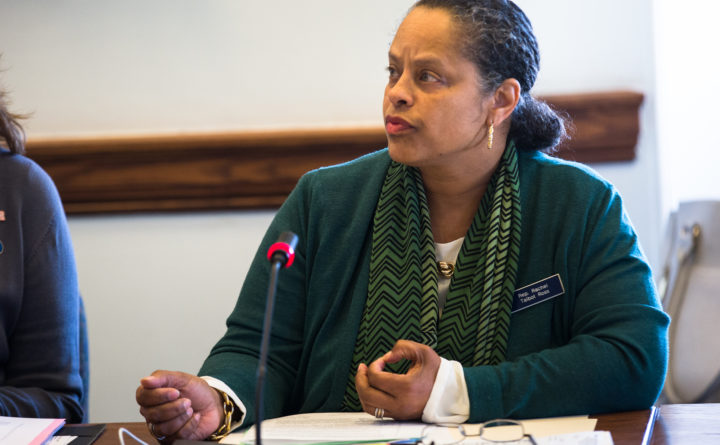
Maine’s federally recognized Indian tribes are seeking to restore their ability to prosecute non-Indians in domestic violence and certain other crimes committed on tribal land.
The Legislature’s Judiciary Committee heard testimony on Monday on a bill that would put the Penobscot Nation and Passamaquoddy Tribe on par with other tribes around the country who had that right restored in 2013.
[Subscribe to our free morning newsletter and get the latest headlines in your inbox]
“Sixty-seven percent of the sexual abuse cases reported in Indian Country are declined for prosecution. It’s not the tribes who decline to prosecute, it’s the state and federal law enforcement agencies that refuse to prosecute,” says Rep. Rachel Talbot Ross of Portland, the chief sponsor of a bill to address a 1978 U.S. Supreme Court ruling that curtailed tribal sovereignty to handle such cases.
But Penboscot Nation Ambassador Maulian Dana says there’s a legal conflict for Maine tribes.
[How Janet Mills is moving to repair Maine’s relationship with its native tribes]
It’s no secret, Dana says, that Maine’s Land Claims Settlement Act, which extinguished certain tribal rights, has become a setback for tribal nations because of dueling interpretations over what the Act allows. As an example, Tribal Council member Jennifer Galipeau, who works as a victim advocate for the Penobscot Nation, says she repeatedly hears from clients who don’t report domestic violence because they don’t think it will do any good.
[Janet Mills signs bill to officially replace Columbus Day with Indigenous Peoples Day]
In the four years that she has worked as a victim advocate, Galipeau she has yet to see a single domestic violence case that has been reported to the state go to trial.
No one testified against the bill, which is similar to one rejected by lawmakers in 2015. Back then, former Attorney General Janet Mills opposed it out of concern that it encroached on state sovereignty.
However, a Mills spokesperson says the governor recently wrote to members of Congress to express support for a new provision, authored by U.S. Rep. Chellie Pingree of Maine’s 1st District, that would put Maine’s tribes on equal footing with those in other states.
Mills has not said whether she would support the new bill. But Penobscot Nation Tribal Judge Eric Mehnert says the argument that it could infringe on state sovereignty is without merit.
[Commission’s report reveals history of ‘cultural genocide’ in Maine]
It specifically states that “nothing in the Act creates or eliminates any federal or state jurisdiction over Indian Country or affects the authority of the United States or any state government to investigate or prosecute a criminal violation in Indian Country.”
This article appears through a media partnership with Maine Public.
If you or someone you know is experiencing domestic violence and would like to talk with an advocate, call 866-834-4357, TRS 800-787-3224. This free, confidential service is available 24/7 and is accessible from anywhere in Maine.
This article originally appeared on www.bangordailynews.com.





